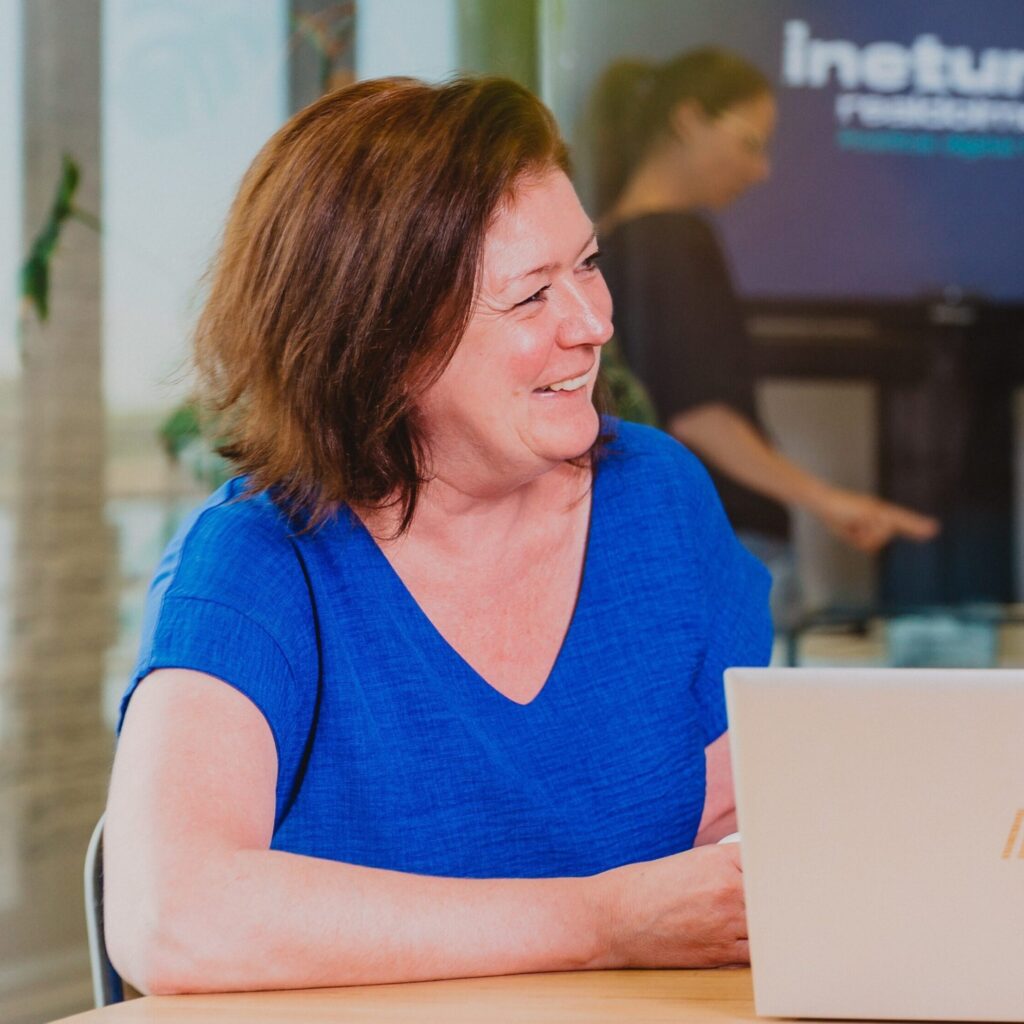


In an interview on the Bloovi(1) news website, Rik Vera posits that boundaries between sectors and industries will continue to blur in the future. Vera is a thought leader and Nexxworks co-founder. If your company still wants to be relevant in 2035, he recommends considering what customers would miss if you were to disappear. The reason for your existence – what distinguishes you – is a fundamental question with a simple answer. If companies and organizations want to survive, they must build ecosystems and create value for customers based on a shared space and shared goal.
In 2014, Tesla made their patents open source for other companies, giving the ecosystem thinking a radical boost. They wanted to enhance the market for electric cars and accelerate the growth of related ecosystems such as charging infrastructure. By opening up its R&D, Tesla laid the foundation for explosive growth at a time when only 1% of all cars sold were electric.
Technology leadership is not defined by patents, which history has repeatedly shown to be small protection against a determined competitor, but rather by the ability of a company to attract and motivate the world’s most talented engineers. We believe that applying the open source philosophy to our patents will strengthen rather than diminish Tesla’s position in this regard. <Elon Musk>
Companies are increasingly aware that they can’t do everything themselves forever. Changes and challenges occur in rapid succession, making fully autonomous operation less and less feasible as time goes on. Along with evolving customer expectations, blurred lines between products and services, new technologies and the exponential increase and dominance of data, companies must also deal with social issues such as health care, an aging population, waste treatment, sustainable products, water, energy and mobility.
These challenges are often too big and complex for a single company to handle, or even a single industry. This forces organizations to consider new forms of collaboration in order to be able to offer customers end-to-end support and help solve their problems in a broader context. Ecosystems are considered to be the new modus operandi for the future.
Beyond strategic partnership
In their whitepaper(2) on ecosystems, researchers at the Vlerick Business School distinguish between strategic partnerships and ecosystems. Strategic partnerships are clearly defined formal relationships between a select number of partners chosen for their strategic fit and complementarity. An example is the collaboration between Philips and Douwe Egberts to create the well-known Senseo coffee machine.
Ecosystems go further and consist of a larger group of partners who collaborate in an intentional, but more organic and evolving context. They are described as ‘continuously changing networks of stakeholders’ and include customers as well as other parties, such as service providers, social partners, government bodies, suppliers and competitors.
In an ecosystem, stakeholders join forces on the development of products and services, through collaboration and competition, while benefiting from their combined knowledge, expertise and network. This approach ensures clearly defined connections and dependencies, enabling the provision of added value to customers based on a shared mindset and mutual trust. The resulting value exceeds the sum of all participants.
In doing so, it is equally important to clarify which areas are and are not subject to collaboration. By working together in ecosystems, organizations are also more compelled to take problems and challenges to a higher (societal) level, reducing short-term thinking as much as possible.
For example, Daimler and BMW have joined forces to offer customers a single source of sustainable urban mobility services, such as electric car sharing and easy access to charging stations and parking facilities. Aiming to achieve zero-emission mobility, they collaborate with cities, municipalities and other interested parties. Outside this clearly defined agreement, these two major car companies are still competitors in the premium car segment.
In Belgium, too, there have been some nice examples of ecosystem thinking. Consider D’Ieteren, which, through its Lab Box start-up, has evolved from a traditional car company to an innovative mobility company offering a full range of mobility solutions, from free-floating car sharing to charging solutions for electric cars and scooters, and recently even (lease) bicycles.
Another great example is Fost Plus, that facilitates a unique ecosystem and collaborates with public and private actors around the circular economy and helps build a sustainable society together with them.
And then there’s KBC’s mobile app and its virtual assistant Kate. It offers both traditional banking services and other third-party services related to leisure, mobility, payment services, administration, telecom and energy provision. Users can buy service vouchers or train tickets, rent a shared bike, get automatic access to Q-Park parking facilities or additional services at Brussels Airport, or switch to a new energy supplier. It’s all about customer centricity; the ultimate goal is to make services available to customers as easily as possible based on daily experience, creating added value and attracting new customers.
While building ecosystems may seem the next logical step in our continued globalization and digitization, they are not yet commonplace. The main obstacles are ego and fear of collaboration with other parties, in particular competitors. The willingness to share expertise and resources, as well as data and networks, doesn’t come automatically. Reluctance and inertia, or even suspicion, are common. In many cases, company structures still rely strongly on vertical silos, including management models, and they are still too focused on the traditional idea of keeping everything in-house.
Data is what connects us – everything is connected, after all – but that’s a problem in its own right. Either there is insufficient measurement, or the right data interpretation is not there yet, or there’s no business model to support it all. Alternatively, the data is there but it has raised other, legitimate concerns, such as data ownership and value. To start with, CEOs aren’t particularly interested in data integration or technology. What they do care about is the revenue model for the data: for example, who gets what share of the result created?
Collaborating in an ecosystem requires a different management style and, maybe even more importantly, a different attitude or mindset. It’s a bit like what the FinTechs are doing by focusing on results, in particular the customer and the customer journey, instead of the formal aspect of pure banking.

It’s more complicated than that, of course. Ecosystems do not guarantee success, but ignoring the possibilities can be just as bad. A textbook example is the retail chain Blokker. They missed the opportunity to acquire the online platform bol.com when it was still a small company back in 2012, because they did not believe in the power of e-commerce and ecosystems. The rest is history.
But there are, of course, challenges associated with ecosystems. The concept is a complex one and failure is certainly possible. As an organization, you need to think carefully about the goals you want to achieve and the value you are trying to create, what your own strengths and weaknesses are, and which partnerships will be most useful to you based on that. Your own DNA and values play a role here, but so do other aspects such as control, the division of roles and responsibilities, and the planning, which you should clarify well in advance.
It is not a matter of eating or being eaten. In fact, companies would do well to engage in constructive collaboration and symbiosis, just like in nature. When companies participate in an ecosystem together, they can all improve and grow, even if they are competitors.
Is everything a matter of eating or being eaten? Is a company successful only when it swallows up all its competitors or forces them out of business? When you take a good look at how things work in nature, the comparison doesn’t hold up. It is an overly simplistic view of survival. In the natural world, organisms actually avoid competition as much as possible. Diversity is the key, and this is what has allowed ‘Nature ltd’, as innovation expert Ylva Poelmans calls it, to survive and thrive for billions of years.
In nature, mutualists are in the majority, not antagonists. This means a form of society where different organisms act to benefit each other – no figs without wasps, for example. When companies participate in an ecosystem together, they can all improve and grow, even if they are competitors. So no, it is not purely a matter of eating or being eaten. Companies, certainly in the current state of affairs, would do well to engage in constructive collaboration and symbiosis, just like in nature.
At Inetum-Realdolmen, we are firmly convinced of the power of ecosystems, both in our own organization and for our customers, and for society as a whole. Of course, our expertise as an integrator and platform builder plays a major role here; a platform provides the connection between the various parties and gives the necessary clout to the ecosystem. However, we are equally convinced of the importance of initiating a dialog about ecosystems. Dialog and interaction across company boundaries are essential first steps in daring to let go of the ego and centralized control, currently the main factors inhibiting ecosystem thinking. Acceptance of ecosystems requires an open mind and a focus on the goal instead of the form, and we’re eager to help with that.
